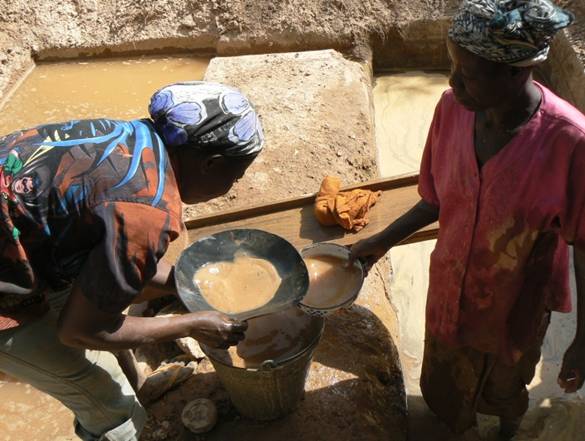Some Japanese non-profit organizations and researchers have initiated a drive to assist Ghana to deal with mercury contamination from gold mines.
The team is introducing a technology that will allow the smelting of gold without the use of mercury which has been found to have serious negative health consequences.
This comes at a time when Ghana has signed the Minamata Convention.
Gold remains one of Ghana’s major export commodities, with its mining largely done on a small-scale level.
The process at the small-scale level involves dissolving the gold ore in mercury then heat-vaporizing the mercury, although this is dangerous. It is carried out untethered in illegal, small-scale mines, run mainly by Chinese enterprises.
Izumi Watanabe, an Environmental toxicology professor at the Tokyo University of Agriculture & Technology did a study on soil samples from small-scale mines in southwestern Ghana and he detected high concentrations of mercury, up to several tens-of-times higher than normal.
Incidences of serious skin disease of unknown cause among mine workers are increasing in mining areas and there is a close relationship between the two.
Professor Watanabe warned that, “there were also high concentrations of mercury found in vegetables and river fish, and if things continue as is, there is the fear of serious health implications.”
The joint research team is building upon a technology originally developed in 1992 by a former senior researcher at the Japanese National Institute of Advanced Industrial Science and Technology, Yukimichi Nakao.
Plans are underway to conduct an experimental trial of the non-mecury smelting method in the mines in Ghana.
The process will now use iodine and its compounds dissolved in organic solvents.
Gold is generally stable and impervious to melting, but it dissolves readily in this solvent. A high yield rate of more than 99% was confirmed in experiments using Japanese gold ore.
Dr. Nakao said: “Iodine is highly stable and easy to handle. Although the costs involved need to be considered, it is a promising alternative to mercury.”
The Minamata Convention, which aims to prevent adverse health effects and environmental pollution from mercury, came into force on August 16, 2017, and its goals include reducing mercury from small-scale gold ore mining. Ghana signed the convention in March, but implementation measures are yet to be developed.
Mr. Tanzawa is calling for cooperation from business: “If non-mercury smelting methods are realized in Ghana, it would become a model for other developing countries. I hope to be able to collect the necessary research funding.”
–
By: Jonas Nyabor/citifmonline.com/Ghana


